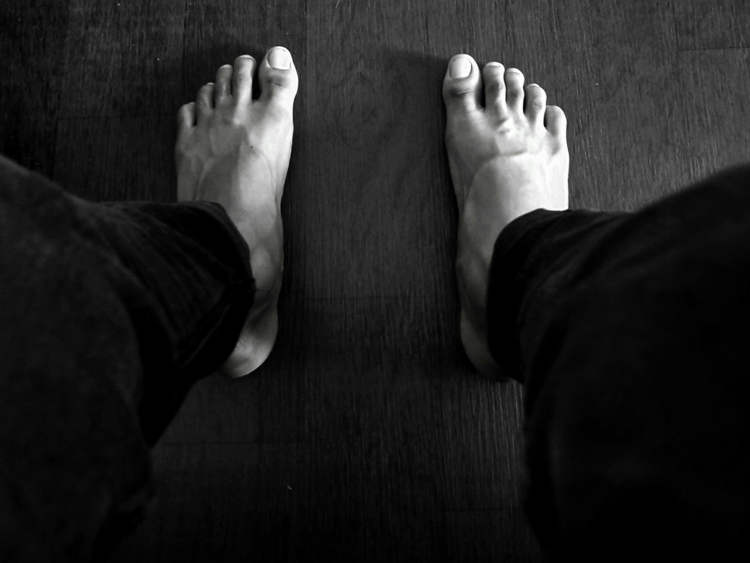While the whole world is obsessed over getting thin, it seems there are far-flung places in the world today where fat is still considered a thing of beauty. Not in a good way, though. In the West African nation of Mauritania, it is so important for girls to be fat that they are sent away to fat camp – the opposite of the western version – during school holidays, to put on oodles of weight.
According to women’s rights campaigner Mint Ely, girls as young as five are subjected to the tradition known as Leblouh each year. Leblouh is an attempt to groom young girls for potential suitors, involving the consumption of gargantuan amounts of food; even vomit, if it refuses to stay down. Ely says that in Mauritania, a woman’s size indicates the space she occupies in her husband’s heart. So to make sure no other woman can ever have room, girls are sent away for Leblouh at special farms where older women will administer the necessary diet. It’s rather appalling to know that 5, 7 and 9-year-olds are expected to consume a daily diet of two kilos of pounded millet mixed with two cups of butter and 20 liters of camel’s milk. Their daily consumption comes up to a whopping 16,000 calories.

Photo: JOOST DE RAEYMAEKER/Marie Claire Magazine
This process is usually done during school holidays or in the rainy season when milk is plentiful. Torture methods are employed in case the girls aren’t eating as much as they are expected to. Fatima M’baye, a children’s rights lawyer, says, “The girl is sent away from home without understanding why. She suffers but is told that being fat will bring her happiness. Matrons use sticks which they roll on the girl’s thighs, to break down tissue and hasten the process.” Some other torture methods include ‘zayar’, where two sticks are inserted on each side of a toe. If a child refuses to eat or drink, the matron will squeeze the sticks together, causing a lot of pain. If successful, the fattening process will cause a 12-year-old child to weigh 80kg. “If she vomits, she must drink it,” says M’baye. “By the age of 15, she will look 30.”

Photo: BBC News
As strange as it seems, the practice of Leblouh is a respected ancient tradition in Mauritania. It supposedly dates back to pre-colonial times, when the white Moor Arabs of the region were all nomads. The richer the husband, the less his wife would have to do around the house. The rich wives were able to sit around the house all day while black slaves took care of all the household chores. Invariably, they got fat, and round bodies became a sign of affluence and of good husbands. Stretch marks, known as ‘tebtath’ were seen as a woman’s jewels. ‘Lekhwassar’, which is fat around the waist, was given lyrical pride. In recent times, however, things were slowly starting to look better for the women of Mauritania. “We had a Ministry of Women’s Affairs. We had achieved a parliamentary quota of 20% seats. We had female diplomats and governors. The military have set us back by decades, sending us back to our traditional roles,” says Mint Ely, about the military coup in 2008. “Until the military coup, we had made strides. Ten years ago we ran information campaigns about the dangers of cardiovascular disease and diabetes. The government even commissioned ballads condemning fattening.” But things went back to they were again since General Mohamed Ould Abdelaziz seized power after the elected president tried to sack him.

Photo: Ametxa
While several middle-class Mauritanians claim that they have abandoned the practice of force-feeding, Leblouh seems to be rampant in the rural areas. According to Mohamed el-Mounir, a political scientist, “Fattening is something from the 1950s. These days girls watch fashion shows on television. Their role models are American actresses or Lebanese singers in sexy dresses. Girls do sport. Yes, Mauritian men like slightly round women. But there is no way we want them obese.” Health and development consultant Mounina Mint Abdellah agrees. She was force-fed as a child, but she says that things have changed tremendously now. “When I left school in 1980, it would have been unthinkable for me to go abroad to study. But now, 30 years later, my daughter is doing her master’s degree in France. We owe a great deal to the fact that all girls are now expected to go to school. Fattening just seems out of date to a large part of Mauritanian society.
Force-feeding young girls may not be as popular as it once was, but there are still areas of Mauritania today were mothers tell their daughters of a magical place where they will go on vacation to the desert to meet other girls and eat sweet food, and return home a beautiful woman. Leblouh, unfortunately, is not as exciting as it sounds, as the poor girls find out soon enough. As Tijanniya, a 14-year-old puts it, “I don’t think fat is beautiful. I love sports and I’m scared I won’t be able to run fast when I’m fat.”
Sources: Marie Claire, The Guardian













